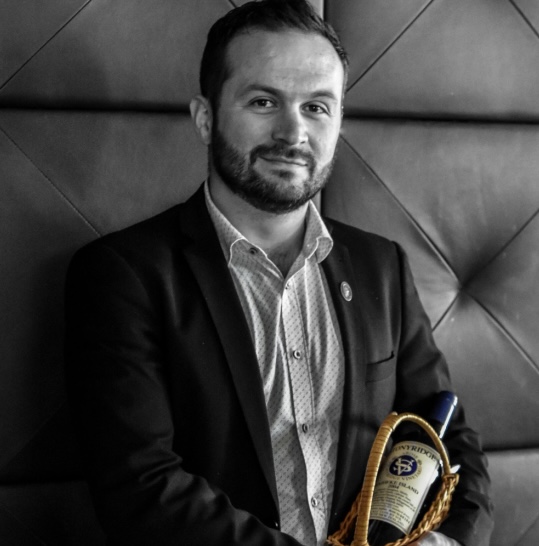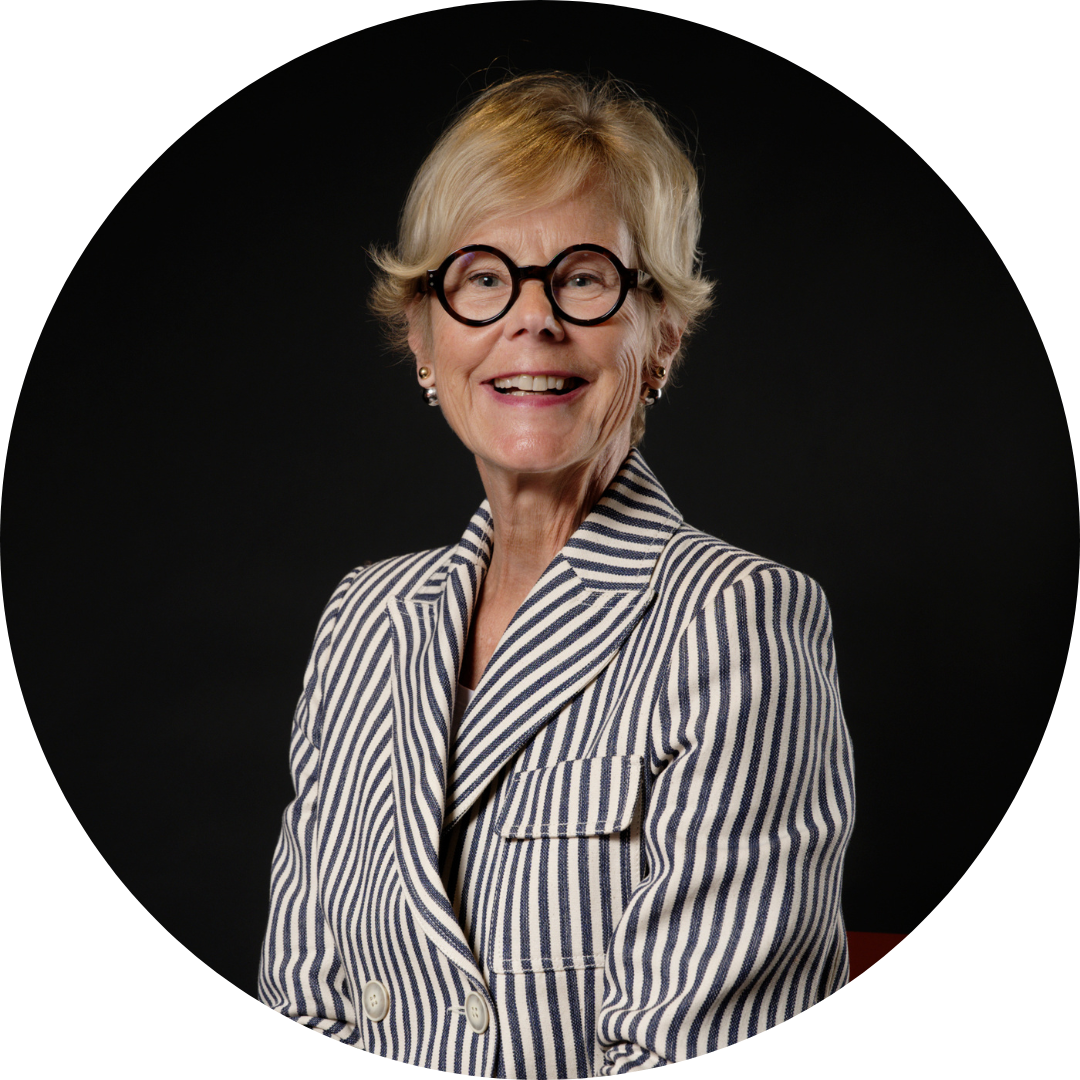Andrea Martinisi
Best Sommelier of New Zealand 2021 and 2022
When I spoke to Katharine Maude of Peter Maude Fine Wines in Auckland about our intention to launch a series about sommeliers—those wine connoisseurs who play a crucial role in enhancing and internationalizing our exceptional wines—she immediately connected me with the Italian-born Andrea Martinisi. Prior to arriving in New Zealand, Andrea’s career as a sommelier began in Europe. He worked in Wales at the Ynyshir Hall restaurant, as well as at the Grand Hôtel in Villa Feltrinelli and the famous Fat Duck restaurant in London. His time with the esteemed Gérard Basset at the TerraVina hotel will undoubtedly remain in his memories forever.
As a child in Italy, he helped his grandfather transfer and bottle wine bought in bulk from a nearby farm, sparking his lifelong passion for wine.
Andrea currently serves as the Beverage Director at the Grove and Baduzzi Restaurants in Auckland. He was named New Zealand’s best sommelier in 2021 and 2022 and is currently pursuing his Master Sommelier certification.
Profession and Daily Life
Gerda: What are the most rewarding and demanding aspects of your daily work?
Andrea Martinisi: As every other hospitality professional will tell you, the most challenging aspect of the job is the long working hours. It’s similar to many things in life—you do it out of love. However, as a sommelier, it also involves staying at the top of your knowledge game, requiring a lot of studying, reading, and staying up to date. This constant learning keeps you sharp and engaged. Thankfully, there are many rewarding aspects as well. Working with wine is truly fantastic. Wine is a product that brings people together. Sharing a nice glass of wine with people is always fulfilling. Moreover, the job often involves opportunities to travel, which I also love, especially in nature-rich areas.
G: How do you stay in good shape?
AM: Well….. physically or mentally? Physically, I stay active by working, which helps burn calories, and I also exercise periodically. Mentally, staying updated with the latest news is crucial, and I am currently studying for my Master’s Sommelier exams, which helps keep me mentally sharp and fit.
Relationship with wineries
G: What are the most important factors for selecting wines for your wine list?
AM: There are several important factors. I never purchase wines solely based on the name, and I always insist on tasting wines before buying them. Additionally, it must offer excellent value, which significantly influences my decision-making process. This aspect is closely related to the culture of New Zealand, where everyone seeks value for money.
G: How do you interact with wineries to select wines for your wine list?
AM: In New Zealand, given our distance from many wineries, we primarily establish contact through importers/distributors, such as Peter Maude Fine Wines, from whom we procure most of our Bordeaux wines. However, we occasionally communicate directly with local producers for certain selections.
Customer requirements
G: What are the most common expectations your customers have regarding wines and your expertise as a sommelier?
AM: The majority of our customers often opt for wine pairings with the degustation menu. The role of the sommelier is still not fully understood in this country and is in a phase of expansion. Over the past few years, people have begun to comprehend and trust sommeliers to a greater extent, but there is still room for improvement in understanding. New Zealand remains relatively young in terms of its hospitality industry, not as developed as Europe or other parts of the world. This aspect makes my job exciting, as we are still shaping and evolving this culture.
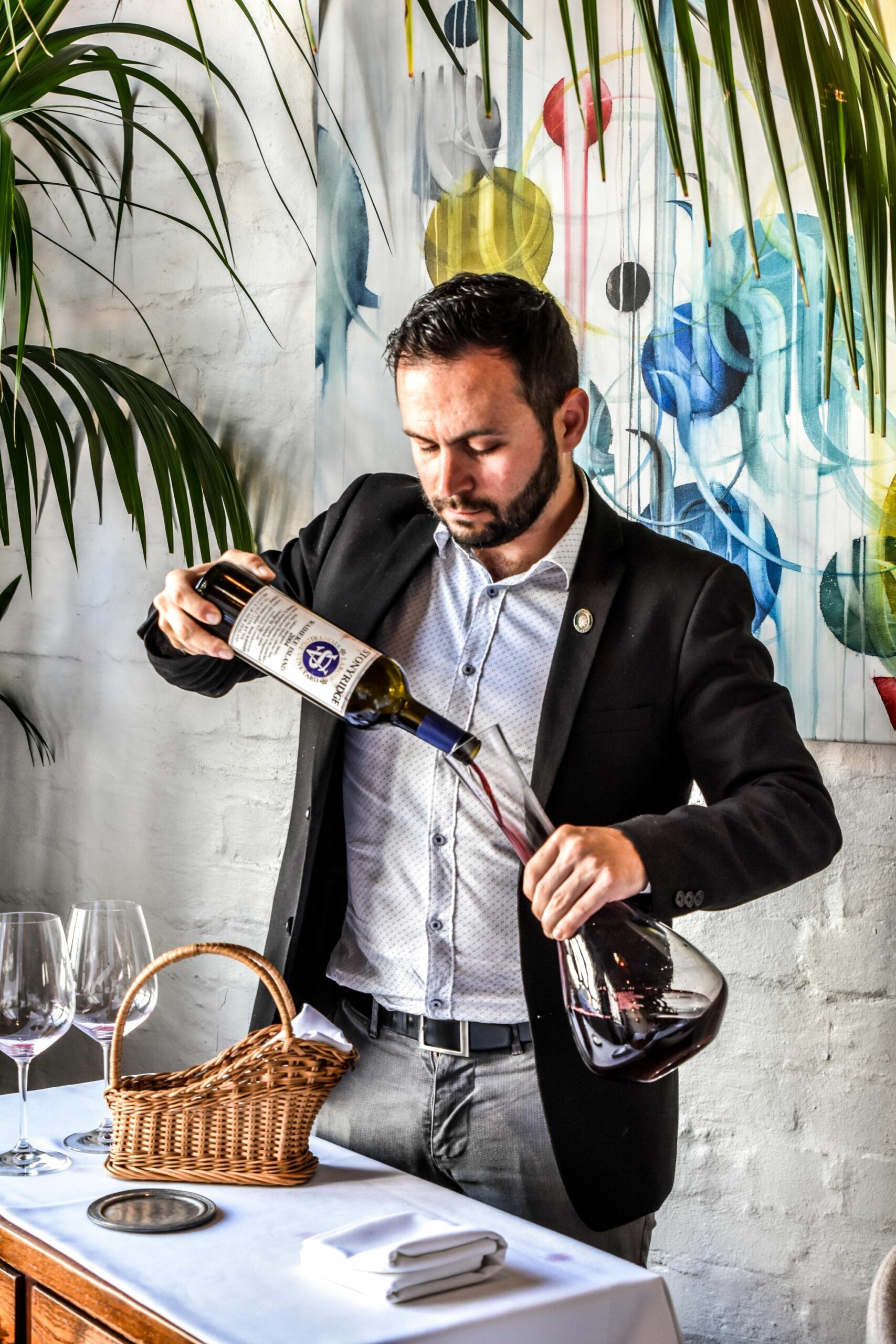
Bordeaux Wines
G: What is your opinion about Bordeaux wines?
AM: Bordeaux is one of those places where you find a wide variety of price ranges, different châteaux, and various quality levels. It’s a region known for offering some of the best wines in the world, but it also boasts smaller, lesser-known producers who can offer excellent value for money. Compared to Burgundy, Bordeaux has far more resources for finding entry-level and mid-level wines.
Bordeaux possesses many resources. It’s remarkable to witness Bordeaux’s evolution in terms of research and development. The city hosts one of the best universities, ISVV (Institut des Sciences de la Vigne et du Vin). It’s a progressive region overall, except for its appellation system, which seems stuck in the past. However, everything else is modern and forward-thinking, making Bordeaux well-known in the wine world. Consider the investments made in the wineries as well; Bordeaux sets an example for many other properties worldwide.
G: How do you select Bordeaux wines?
AM: I procure Bordeaux wines in two ways. I don’t buy En Primeur, so I always look for Bordeaux wines with a certain age. Sometimes, I find them through distributors or from private collectors whom I know have stored the wine perfectly. Our cellars have limited space, which can be both a challenge and an advantage. It compels me to stay vigilant about what’s available on the market, to act swiftly, and to remain dynamic. During the summer months when we have many tourists, we feature more local wines on our list. In winter, when we cater more to local clientele, we showcase more wines from the rest of the world. Local patrons enjoy discovering wines from other regions, not just from New Zealand.
G: What should we do in Bordeaux to have a better representation on wine lists?
AM: Bordeaux enjoys a strong reputation in New Zealand. However, in recent years, due to the effects of Covid and price increases worldwide, including Bordeaux, there has been a decline in the presence of top Bordeaux wines. Nevertheless, Bordeaux currently offers better value compared to Burgundy, where prices have significantly risen, causing struggles in that region. As long as Bordeaux continues to provide good wines across various price ranges, it will fare well in New Zealand, a country known for its price sensitivity, especially concerning wine. Moreover, the image of Bordeaux and the representation of Bordeaux wines in New Zealand are positive. Despite being a small market (New Zealand has 5.1 million inhabitants) we have access to a wide range of wines, including prestigious labels like Mouton Rothschild or Petrus.
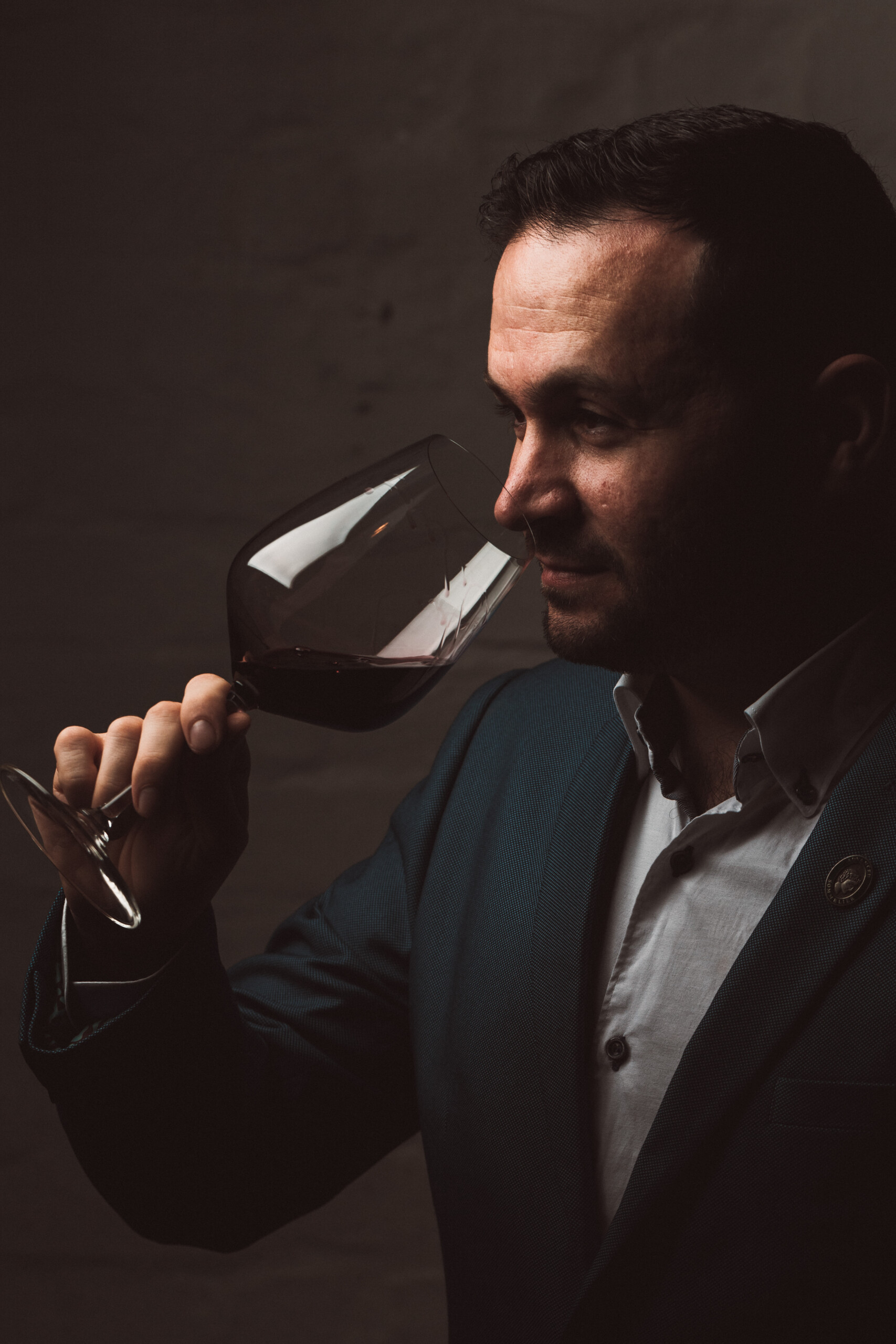
Tendancies
G: Are there current trends in New Zealand, and if so, what are the most popular trends right now?
AM: Because New Zealand is quite isolated geographically, we sometimes are behind in terms of global trends. Trends originating in Europe, for example, often take some time to make their way here. For instance, rosé wines and natural wines remain very popular in New Zealand at the moment. Additionally, there is a noticeable trend towards fresher, purer, and cleaner wines with a more pronounced fruit profile. These wines are also more food-friendly, reflecting a shift in consumer preferences. Even wine makers in NZ are adapting to this trend, producing Chardonnays with less oak influence and Cabernet blends that are less ripe, with reduced concentration and oak. This shift represents a positive development in the market.
G: How do you stay up-to-date with ever-changing trends in the wine industry, and how does it influence your wine choices?
AM: Fortunately, I travel extensively and have a network of sommelier friends around the world who help me stay informed. It’s crucial to remain updated by reading magazines, engaging in conversations, and attending tastings whenever possible. Bordeaux is on my list, but when I want to go to Europe I have to take at least 2 weeks for traveling.
Currently, there are many exciting emerging regions, such as Greece, Hungary, and smaller countries in South America like Uruguay, that produce exceptional wines. These regions offer unique stories, steeped in history and tradition, often utilizing local grape varieties and showcasing distinctive terroirs. The wines from Eastern Europe are particularly intriguing, and it’s exciting to see them making their way into New Zealand.
Advice for future sommeliers
G: What advice would you give to young professionals aspiring to become high-level sommeliers like yourself?
AM: It’s crucial to maintain an open mind, especially in the restaurant industry where the guest experience is primordial. Listening attentively and being sensitive to the guest’s preferences and desires are key skills. Whether a guest is seeking a prestigious label or looking to explore new wines within a budget, the focus should always be on creating the best possible experience for them.
Preparation demands giving your best effort, which can be challenging due to the long hours required daily. Studying is essential and requires dedicated hard work, especially if you aspire to become a Master of Wine or Master Sommelier. There are no shortcuts in this journey, and significant time and effort are necessary to progress in the industry. However, the efforts will be paid back.
The Wines
G: What is the best way to taste?
AM: The optimal tasting environment is one that is neutral and well-lit, devoid of any external influences. Achieving proficiency in tasting requires extensive practice. Furthermore, knowledge is essential because it enables you to understand what you are tasting and to discern the characteristics you are seeking. It can be challenging to correlate what you taste with what you expect, underscoring the importance of studying various grape varieties and regions. For instance, distinguishing between a 2022 and 2020 Chablis involves recognizing differences in fruit ripeness. Therefore, acquiring knowledge plays a significant role in the tasting process.
G: What is your favorite grape variety?
AM: That’s a difficult question. I’m not sure if I have a single favorite. I lean towards drinking more red wines and tend to appreciate varieties with good acidity and tannins, especially when enjoying them with food. As an Italian, I have a fondness for Sangiovese and Nebbiolo. Additionally, I have a great appreciation for Cabernet Franc; it’s a wonderful grape that I feel is somewhat underrated. When it comes to Bordeaux, I particularly enjoy Petit Verdot when it’s well-made.
G: What is your favourite wine?
Difficult question… I can, however, tell you about one of my best wine memories. In 2014, the first time I tasted Petrus, it was a 1985 Petrus, the year I was born. I was completely blown away. I was still fairly new to the industry, and that was one of the moments when I realised that I really loved this job. I still remember thinking “yes, I’m in the right sector”.
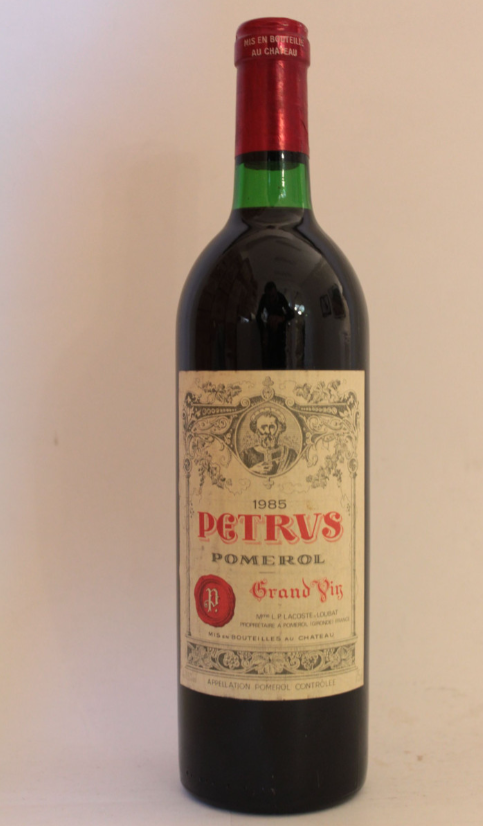
G: What is the best food pairing with a Bordeaux wine?
AM: It might be a little bit classic and a little bit boring but a really well-aged Bordeaux with a Rossini filet. It is one of the pairings which is hard to beat and it is incredible. As Bordeaux wines age, wines develop earthy notes and a black truffle character. I tend to go more for a cabernet dominated wines, so a wine from the Médoc of Graves would be sublime with this kind of dish.
Gerda BEZIADE has an incredible passion for wine, and possesses a perfect knowledge of Bordeaux acquired within prestigious wine merchants for 25 years. Gerda joins Roland Coiffe & Associés in order to bring you, through “Inside La PLACE” more information about the estate we sell.

